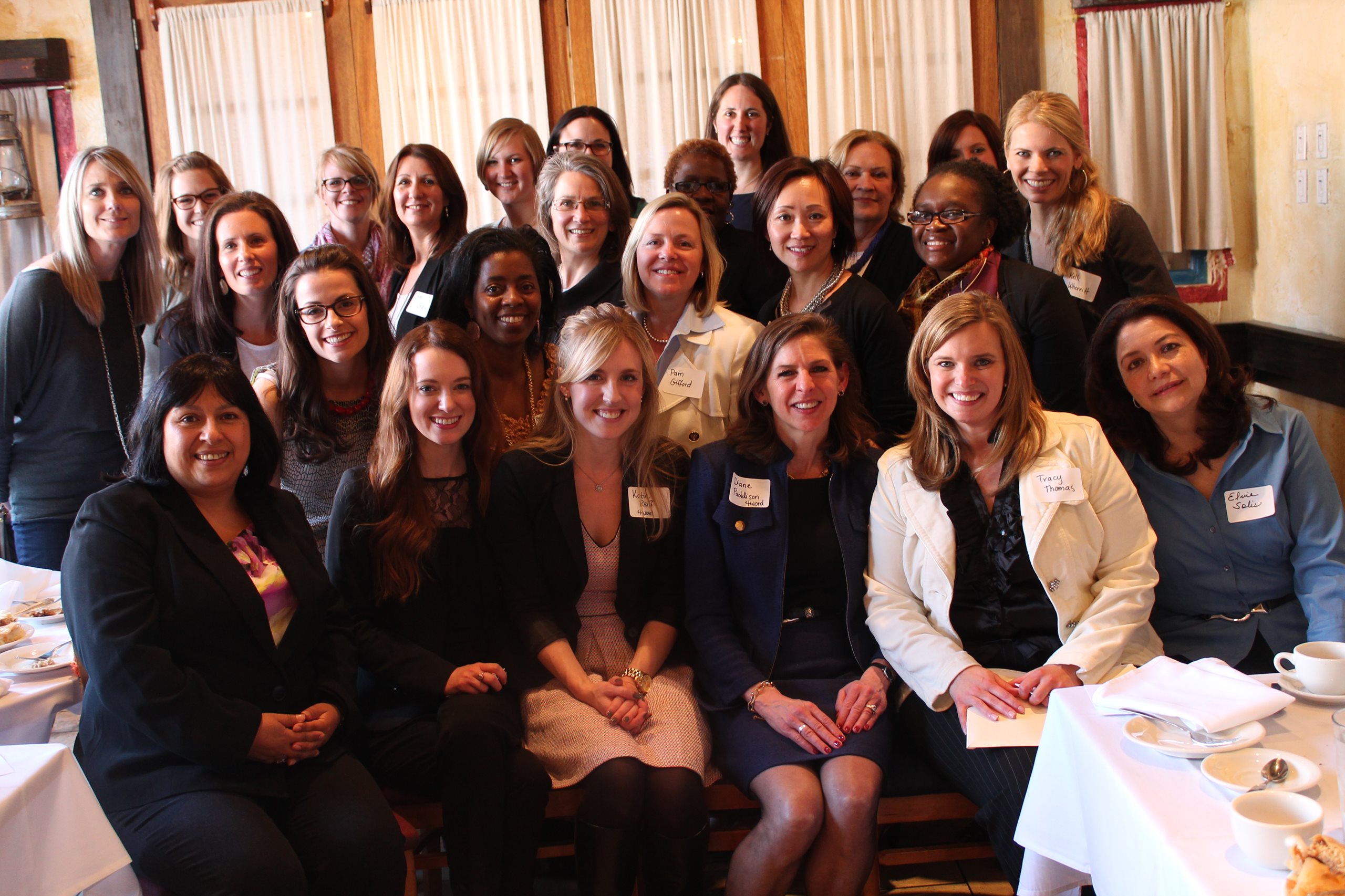3 Keys for Finding Your Calling
Do I take this job offer? Should I marry this guy? Should I go for that promotion? Do I want to have kids? Should I be with my kids full time? Do I need to work less? More? Is it time to ask for a raise? Is it time for a vacation? Is it time to quit? Even when you're in God's Word and praying and listening regularly to God, these decisions are still very difficult to make!
You can—even without handy memos from God—approach those day-to-day decisions in a way that honors his will for your life. There are three keys you can use to help discover your calling. They don't make up a to-do list that you can complete and set aside. Think of it instead as a tool box—something you will revisit again and again as you face new questions and challenges.
1. Assess yourself.
You are God's unique (and developing) creation, and you need to understand the gifts that he has given you. What are your priorities, strengths, and weaknesses? Start by taking the time for serious introspection and think through the basics on your own. It helps if you have some work history to reflect on, but if you're just coming out of school, that's okay too. What kinds of work projects or assignments do you like (or dislike) doing? What's your work style— do you like to plan ahead or take things as they come? Do you prefer to work closely with other people or by yourself? Do you enjoy public speaking? How do you feel about meeting new people? When you have a task to do, what best motivates you to complete it?
Some people thrive in environments where they feel the most secure, as when their employer has a consistent, locked-in pay scale. I'm competitive and goal-driven, so that kind of pay system didn't work well for me. I'm more motivated when I know that at least some of my pay is tied to performance. Maybe you're the same way; maybe you're not. I had to work at both kinds of places before I figured this out.
To become more aware of your unique personality, tap into the host of outside references and assessments. You can get a good start from free or nominally priced online assessments like the Kiersey Temperament Sorter or the Career Liftoff Interest Inventory. If you can, I think it's well worth it to consider paying for a Strong Interest Inventory or a Myers-Briggs Type Indicator evaluation from a career counseling service. These tests are more extensive, and it can be helpful to talk through the results with an experienced counselor. Many college career offices offer such services to their students and alumni, and many employers' human resources departments can do the same.
Also consider the people around you as a great (and totally free) resource. Solicit input from those who know you well, who you trust and respect, and who have had the opportunity to observe you over time and in a variety of circumstances. I've found that it works best to ask specific questions rather than open-ended ones. So, for example, asking something like, "What one thing would you suggest I focus on in order for me to better succeed in my career?" (a question I have actually used), might yield more useful feedback than, "What do you see as my strengths and weaknesses?"
Be open to insights from unexpected places too. Early in my career, I was contacted by a friend from business school about a position opening up at the commercial real estate company where he worked. I was intrigued, but I just didn't see myself as a good fit for the industry, and I told him so. His response was a huge light bulb for me: "Diane, think about what makes you tick. You're very project- and results-oriented. Pulling a team together and executing a plan. Working with people. Don't think so much about real estate, but about what you like to do and how this job will let you do that."
The more I thought about it, the more I realized that he was totally right about what made me tick. I took the job, and stayed there for decades.
2. Find fellowship.
It's crucial to be in community with at least a few women who "get you." For me, that means other Christian professional women. I was blessed to find a small group of such women early on in my career, and I'm not sure I would have made it to where I am spiritually, professionally, or personally without those women in my life. Having a group of women to walk through life with, who are safe and accepting, and who share and understand my fears, challenges, and joys has been like oxygen for me.
It wasn't until later in life when I fully realized how rare it was (and too often still is) to experience that kind of fellowship. When it comes down to it, that's basically the reason I started 4word four years ago. When we first launched, I wasn't entirely sure what all 4word would do, but I knew that connecting women would be a cornerstone.
My friend Katie, who helped launch the first 4word local group in Portland, Oregon, has come to rely on her small group there for prayer, advice, and support through big transitions and decisions in her life. They've served as sounding boards, coaches, cheerleaders, prayer partners, connectors, and counselors, sharing tears, laughter, wisdom, and more than a few good meals together. If you already have women like that in your life, good! Stay in relationship with them. Make time for them. Work at it, even (or especially) when life gets crazy. Be praying for them and ask them to pray for you. Pray that God uses them to speak his truth into your life. These relationships are God-given and they are life-sustaining.

4word's Chicago local group at its launch in April 2014.
If you don't have this kind of community, it's time to do something about it. There are women just like you out there, and they're looking for friends too. Prayerfully consider reaching out to a small group of acquaintances whom you think you would be able to take your friendship to the next level. Also go to your church leadership. Even if your church doesn't currently have a group for professional women, church leaders might be able to connect you with some like-minded individuals. You can check here to see if 4word has a local group established in your area.
Forming the kinds of bonds I'm talking about takes time and effort. It can be awkward and uncomfortable, especially at first, but it is worth it. Persevere through the awkward stages. Keep showing up for each other. Keep praying. You'll get there. And you'll be glad that you did.
3. Engage with mentors.
Be intentional about seeking out—formal or informal—mentors in your life. Good mentors can serve as a kind of personal "board of directors" for you as you navigate the many decisions and challenges you will face. Mentor relationships can come in a variety of forms, but essentially, a mentor is a person who is more experienced than you are, who is willing to offer you advice, guidance, and support. It usually helps if you share some commonalities, but mentors' lives don't necessarily have to look just like yours. I've been effectively mentored by both men and women, and I myself have mentored at least one young man whose life is pretty much the opposite of mine.
One mentor may be able to speak to all aspects of your life, while others may help you in a specific area. Sometimes this kind of mentoring relationship falls into place naturally. More often, though, you have to work at it, at least a little.
If you're looking for a mentor, there are lots of resources out there. Many churches and employers offer formal mentoring programs that can match you with a willing mentor. Check too with your school's alumni association; they may offer something similar. 4word offers a mentor match program as well, specifically for Christian professional women who want to grow in their faith as well as their professional and personal lives.
If a formal program isn't for you, consider simply asking someone you know and admire at work, at church, or in the community if she is willing to serve as a mentor. If you're looking for help in a specific area, make that clear. A busy executive at your company might hesitate to commit if it sounds like you're looking for a general, 24/7 sounding board. But if you make it clear that you are working toward a specific goal—maybe you want to reach the executive level yourself—and are seeking guidance and feedback in that area, he or she is much more likely to agree. I've been on both sides of that request, and I can tell you that it makes a big difference.
Once you have a mentor or mentors in place, don't be afraid to lean in to that relationship. It can be scary opening yourself up and allowing someone else to speak authoritatively into your life. But, as my friend Joy put it, there is wisdom, joy, and freedom in submitting to people who have gone before you.
And as you benefit from mentoring and gain experience in your own life, remember to "pay it forward" to others, as God asks us to help those who are coming behind us (Romans 12:16). In doing so, you'll find that mentoring is not a one-way street. One of the most unexpected and exciting things about watching 4word's mentor match program grow has been seeing first-hand the way a strong mentoring relationship benefits both parties.
4. Bonus key: Reach out to God.
In addition to the three keys already mentioned, there's one more you don't want to miss: Seek God first and foremost. As you pursue your life's calling, continue to reach out for God, wherever you are, however you can, and he will meet you. His faithfulness knows no bounds.
Subscribe to TCW at this link, and sign up for our free e-newsletter to become part of a community of women striving to love God and live fearlessly in the grit of everyday life.
Read more articles that highlight writing by Christian women at ChristianityToday.com/Women
 Read These Next
Read These Next

 Considering Working at Home?Learn from my mistakes. Please.
Considering Working at Home?Learn from my mistakes. Please.
 Seeking God's Calling for Your LifeHow to hear what he’s saying
Seeking God's Calling for Your LifeHow to hear what he’s saying
 Don’t Underestimate the Power of PrayerRise up from your rut and reclaim your spiritual passion.
Don’t Underestimate the Power of PrayerRise up from your rut and reclaim your spiritual passion.








 Homepage
Homepage

